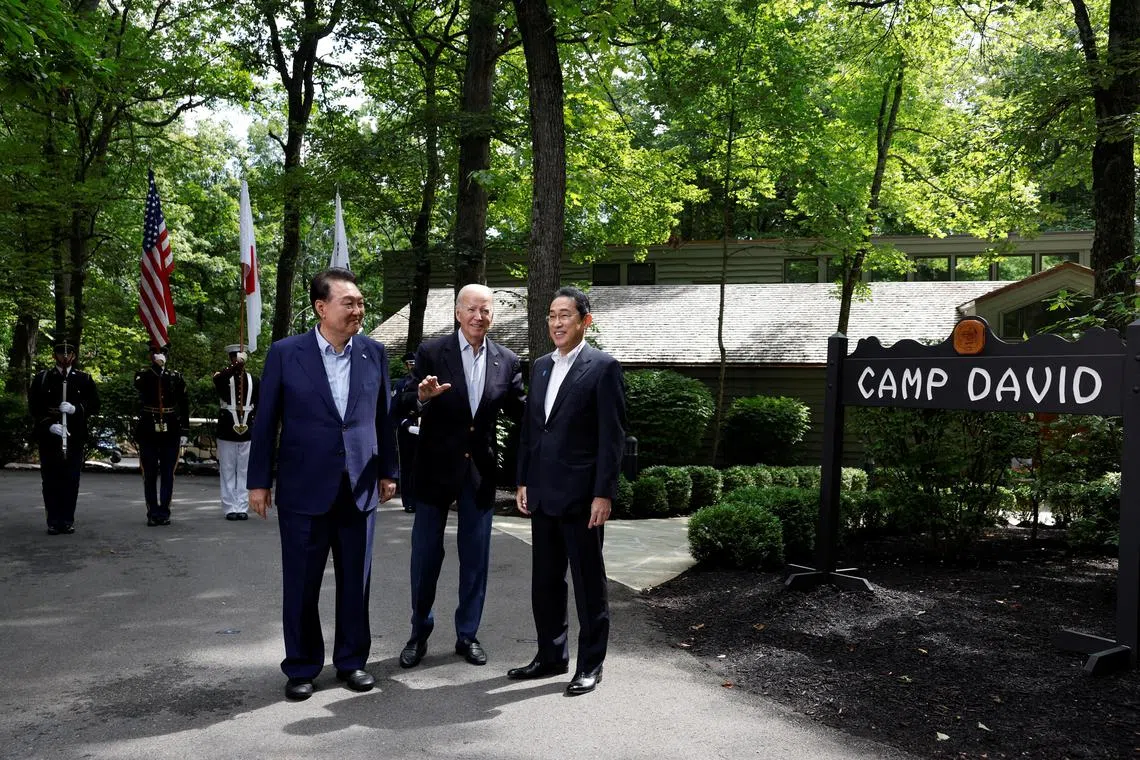For subscribers
US-Japan-S. Korea pact: More like the Quad than an ‘Asian Nato’
The trilateral agreement lacks a key Nato feature but is nonetheless bad news for Beijing.
Sign up now: Get ST's newsletters delivered to your inbox

(From left) South Korean President Yoon Suk-yeol, US President Joe Biden and Japanese Prime Minister Fumio Kishida in Camp David, Maryland on Aug 18.
PHOTO: REUTERS
In their first stand-alone trilateral summit, the leaders of the United States, Japan and South Korea met at the American President’s rural retreat
Officials and government-controlled media of the People’s Republic of China (PRC) have condemned US-Japan-South Korea trilateralism as a “small Asian Nato” that somehow is both “doomed to fail” and will bring “geopolitical tragedy” upon the region.



